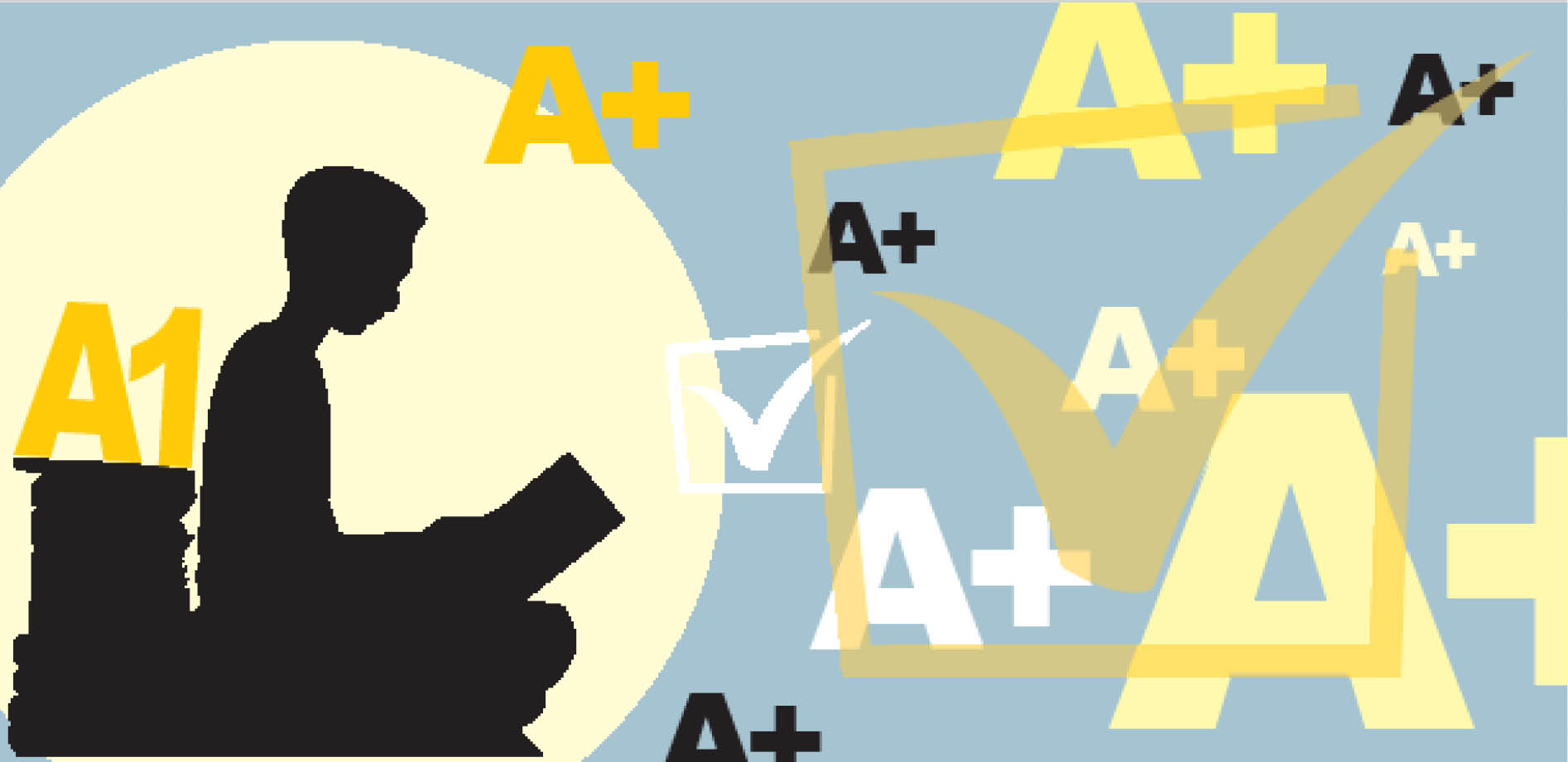Want to stay ahead of all your classes? Follow these instructions carefully. For those who did not get the James Hadley Chase reference here, and those who did, I have great news.
What I’m about to tell you is (almost) guaranteed to stand you out and keep you ahead of your class – any class in the world. Whether it is at the primary school level, secondary or university and whether it is at the University of Maiduguri or the University of Manchester, it doesn’t matter. This will help you. That is what research – and reality – say.
Personally, I’ve found it to be true. Recently, the director of a private school told me that her children were preparing for WAEC. and what I’m going to tell you today was the advice I gave her.
But first, the background.
What predicts academic performance?
Douglas Barton’s company, Elevate Education, works with 1,200 of schools in many countries including Australia, South Africa, the UK and the United States.
The group wanted to answer a question that has troubled students for centuries: what is the secret of top-performing students?
Douglas Barton in a TED Talk presented the results of their study: ”We found 13 variables that were more effective in terms of predicting academic performance than simply IQ, ” he said.
But one variable alone had more predictive power than all the other twelve. That is what this column is about this week. The fact that it is so accessible to everyone makes one’s heart sing.
”One of the factors, in particular, we found to be multiple times more effective, ” Barton explained at the talk, ”to predict academic performance and that was practice exams.”
Yes. Practice exams or answering past questions. The kind you wait to do at the last moment. Now, science is saying it should be your key tool and not to wait to use it only when there is time.
Why does this predict academic performance?
”We found that the top students do more practice exams than anyone else, ” Barton said.
The essence of what he is saying here is that practice exam alone differentiates top performers from the average students.
That is not all. Their study answered more questions. For example, if you pick a particular student doing poorly, what intervention would you recommend?
That is, everything being equal, if you are given a student of average intelligence how can you legitimately raise his grades without getting him to study too much?
”We found you could almost perfectly estimate a student’s results by looking at the number of practice exams they have done, ” he said.
The insight from this result is that for teachers or parents trying to get the children to do better during a regular school term or when revising for exams, just get the student to do practice exams – whether the questions were written by you, at the end of the textbook or you got them from past question papers, just get them to answer questions.
Lastly, what is one reliable way for you to rank a class if you had no option of doing so through examination scores?
“We also found that we could almost perfectly rank a class from first all the way down to last just given the number of practice exams they would do across a year, “Douglas Barton said.
In sum, the value of adopting this strategy is beyond using it as a tool to pass an examination. Its continuous usage can lead to objective accumulation of knowledge. This is not surprising seeing that what Douglass Barton described is a manifestation of a much-researched phenomenon called retrieval practice.
Research has also shown that if you do this type of practice in one subject, its effects carry to other subjects. For example, if you do practice exam in English, it helps you do better also in history. For more on that, read my previous column with the title “Does Qur’an memorization help you learn other subjects?”.
Accordingly, this is what I tell those studying for ACCA and other difficult examinations: grab a bunch of past questions and study with them. Forget anything else!
My friend, a professor in the Middle East, told me that when he was practising for PMP (project management) exam, he read a basic text on the subject and then concentrated on past questions. He passed at first seating. For those who don’t know, PMP is a difficult thing to pass.
Also, a colleague told us that at her child’s school once you are in SS1 you are only taught with past WAEC questions and almost all students pass WAEC in that school. This may be extreme, but if you are teaching your senior classes only to pass exit examinations, this is the way to go.
Whenever I give a talk about this, parents, teachers or students ask if this is cramming. No. It is not. Studies have shown that this is the best way to engage your brain to learn by forcing it to make mistakes and learning from those mistakes. It is also a better way to validate whether you have truly understood a topic.
John Dunlosky and colleagues raked through 100 years of research looking for the best learning technique and found that this is best. For more on that work, read my column entitled ”How to Remember Everything You Learned.”

 Join Daily Trust WhatsApp Community For Quick Access To News and Happenings Around You.
Join Daily Trust WhatsApp Community For Quick Access To News and Happenings Around You.


